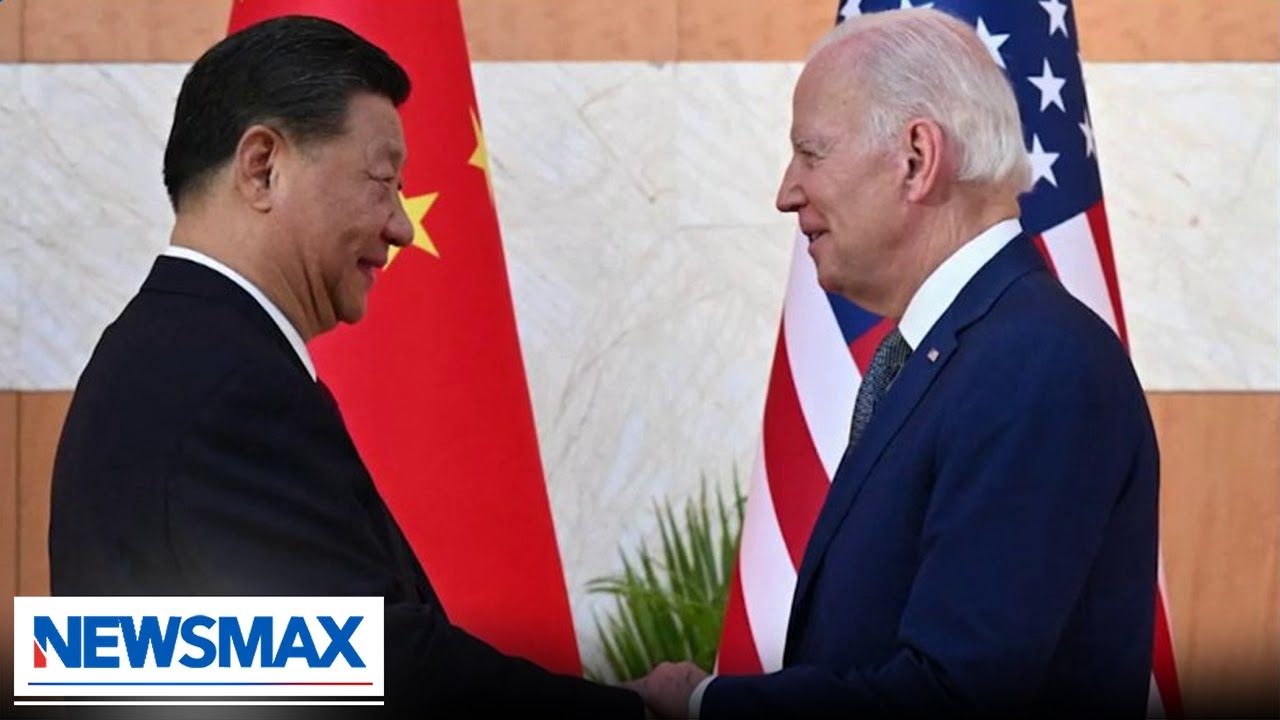'Biden Will Have To Push Back' On China — Gordon Chang
Unleash Your Creative Genius with MuseMind: Your AI-Powered Content Creation Copilot. Try now! 🚀
Introduction: A High-Stakes Showdown
In the realm of international relations, few rivalries have captured the world's attention quite like that between the United States and China. As tensions continue to escalate under the Biden administration, it's becoming increasingly clear that this is not a mere squabble between two global powers. It's a high-stakes showdown with potentially catastrophic consequences.
Section 1: Beijing's Desperate Gamble
China finds itself in a precarious position. President Xi Jinping, like a poker player facing a losing hand, seeks to intimidate the United States. He needs a foreign enemy to rally his people and distract them from the mounting troubles at home. And so, he pushes the Biden administration around, testing their resolve and daring them to make a move.
But here's the thing: China may be playing a dangerous game. The more they push, the more likely it is that Biden will have to push back. And when that happens, China might just find themselves facing a bluff they never expected.
Section 2: The Hypocrisy of Sovereignty
One of the most glaring examples of China's hypocrisy lies in their treatment of Taiwan. While President Xi Jinping preaches about respecting every nation's sovereignty, he conveniently ignores the fact that Taiwan has all the attributes of a sovereign state. Under the Montevideo Convention, Taiwan should be recognized as such.
It's time for the United States to shed its bashfulness and boldly declare Taiwan's sovereignty. When we hesitate, China senses weakness and seizes the opportunity to press its advantage. This not only creates dangerous situations but also undermines the global order that relies on the principles of sovereignty and self-determination.
Section 3: The Chip Market: A Fragile Balance
Now, let's talk about the importance of Taiwan in the global chip market. Taiwanese companies, particularly TSMC, dominate the production of semiconductors, with 92% of the world's made-to-order chips coming from their factories. The remaining 8% is largely produced by Samsung in South Korea.
However, both Taiwan and South Korea face the constant threat of Chinese or North Korean invasion. If China were to reunite Taiwan under its rule, the global chip market would be severely disrupted. This, in turn, would have a significant impact on the United States, which heavily relies on these chips for its advanced production.
Section 4: A Call to Action
So, what should the Biden administration do in the face of this looming crisis? It's time for proactive measures rather than reactive responses. The United States must take the initiative to defend Taiwan and offer them a mutual defense treaty. We should also recognize Taiwan as an independent nation, should they desire it.
Furthermore, we need to establish a small U.S. contingent in Taiwan as a deterrent, similar to what we have done in South Korea. By doing so, we create a tripwire that would make any potential invasion a costly endeavor for China. Additionally, we should ensure that Taiwan has the necessary munitions to defend itself effectively.
Conclusion: The Time to Act is Now
The situation between the United States and China is reaching a critical juncture. We cannot afford to be passive spectators in this global power struggle. The Biden administration must demonstrate strength, resolve, and a willingness to protect the principles of sovereignty and democracy.
It's time to stop playing games and address the exceedingly dangerous situation at hand. The world is watching, and the stakes have never been higher. Let us hope that wisdom prevails and that the leaders involved make the right choices. The future of global stability hangs in the balance.

Related Recaps
- Taco and Cheese Night for any Appetite - WFPB/ Raw Vegan Tacos
- KZN Coin Withdrawal। KZN Coin Add Metamask। KZN Coin Listing CMC। Core KZN Coin New Update।
- 2nd Innings Powerplay | Pakistan vs New Zealand | 2nd T20I 2023 | PCB | M2B2T
- Bloemfontein residents say sewage spillages are health hazards
- 100% Completing Garten of Banban 1 & 2